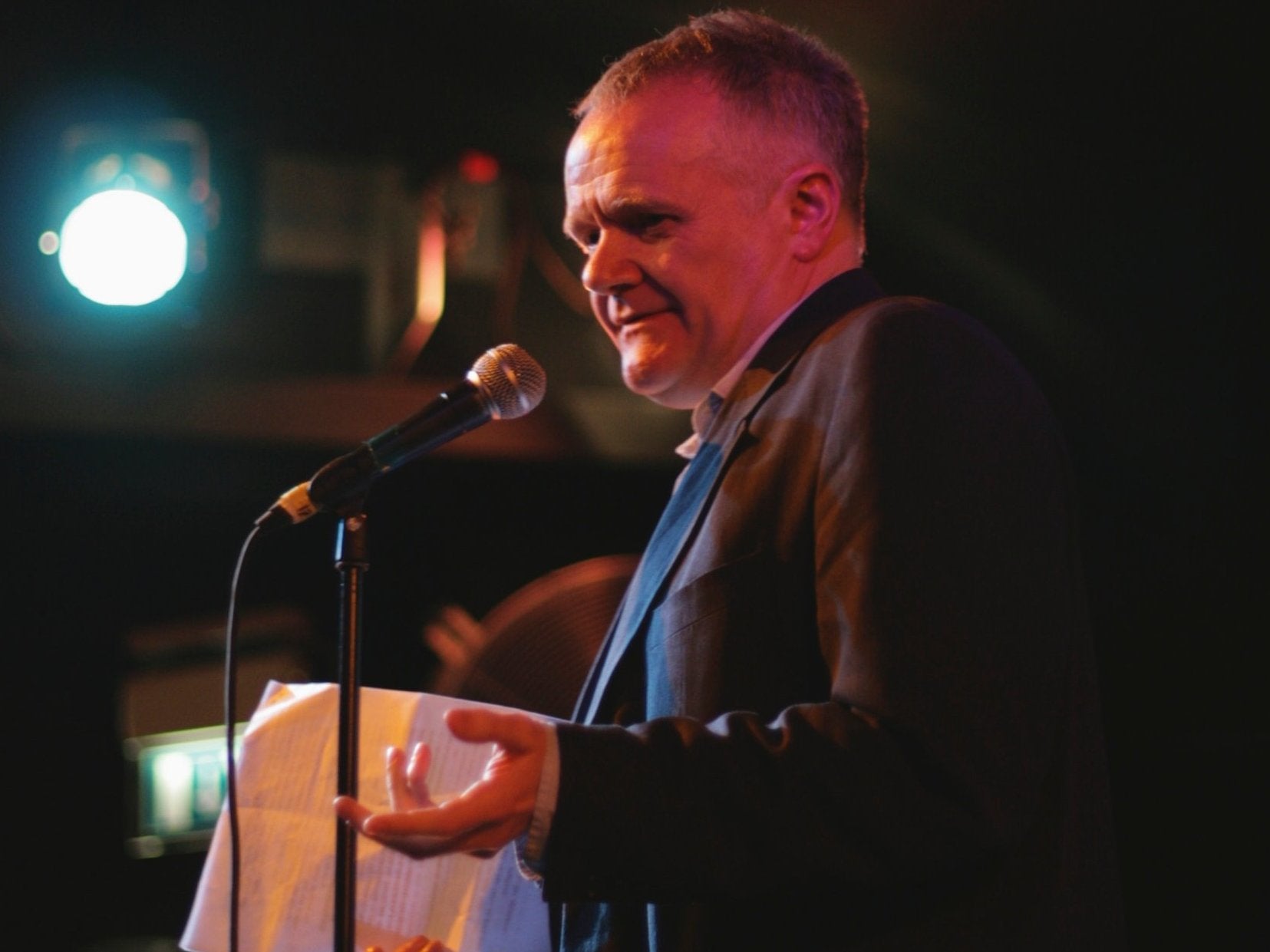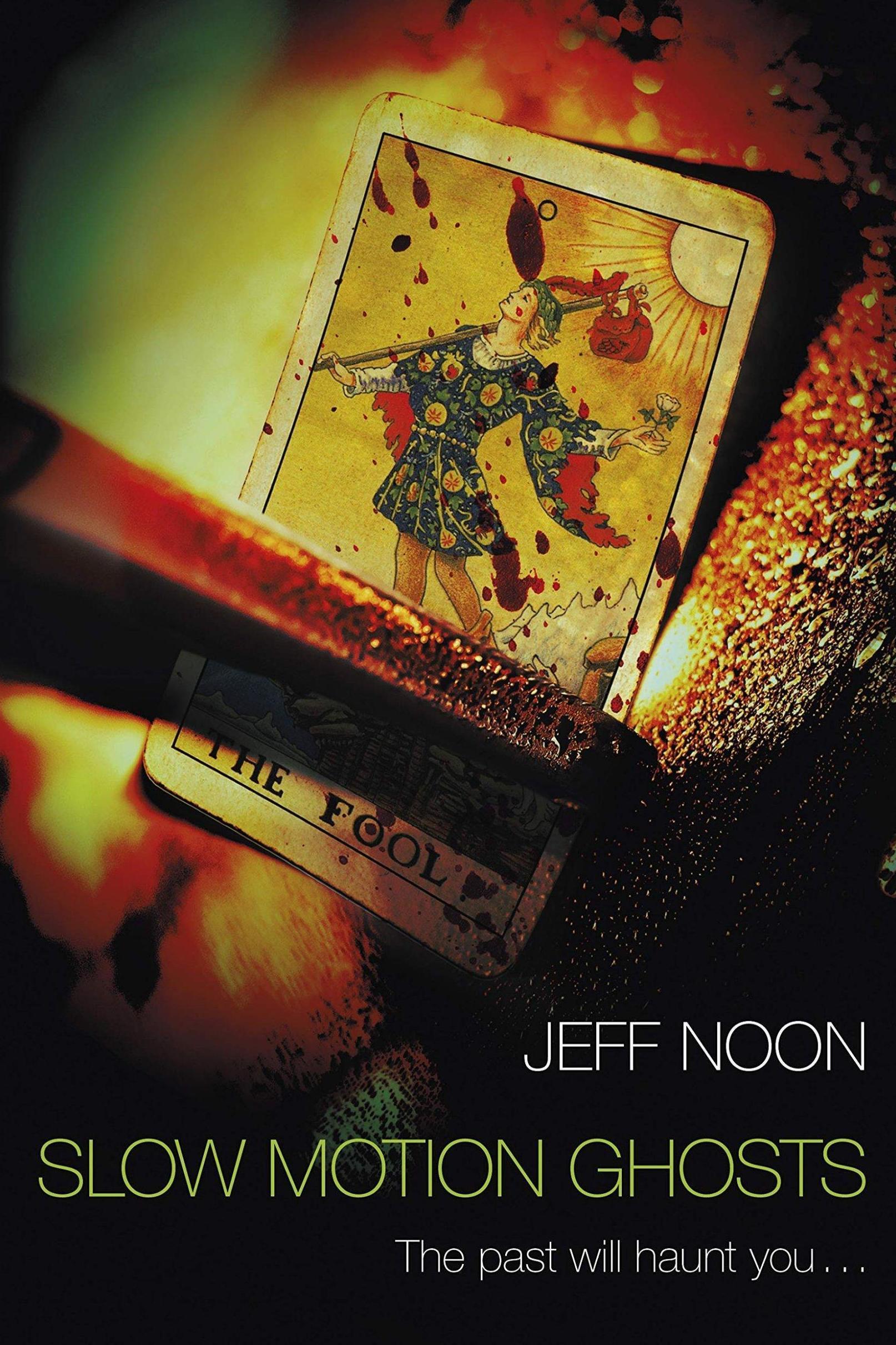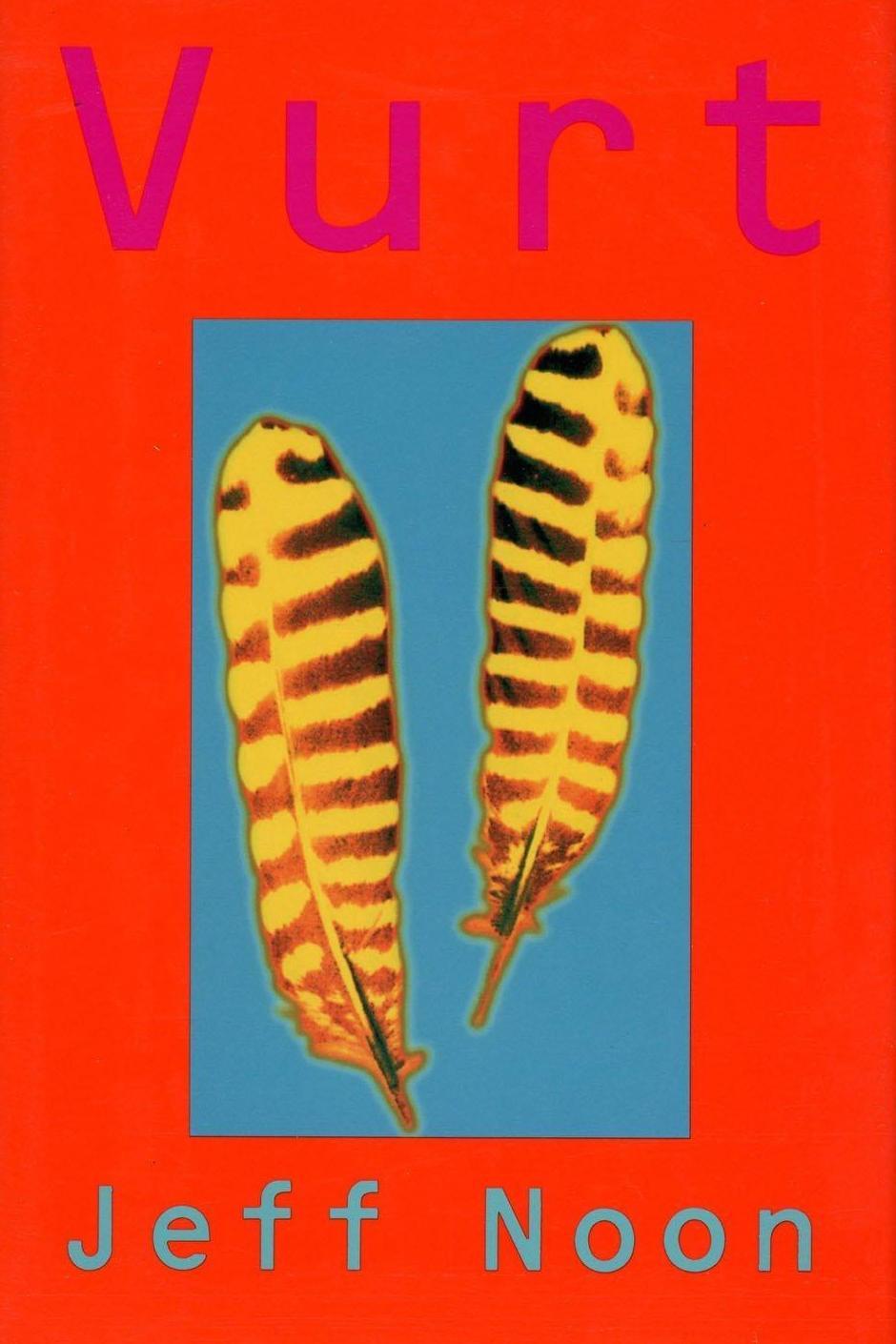‘Slow Motion Ghosts’: Author Jeff Noon transitions seamlessly from science fiction to crime
In the early 1990s, Jeff Noon wrote a visionary science fiction novel that became a cult classic. Now he’s turned to crime. He confesses all to David Barnett


A little over a quarter of a century ago, a tiny Manchester press published its first book. It was called Vurt, and was written by debut author Jeff Noon.
Noon, a native of Droylsden and Ashton-under-Lyne, worked at Waterstones in nearby Manchester at the time, and the small press, Ringpull, was the brainchild of his colleague Steve Powell, who asked Noon if he was working on anything that might fit the fledgling publisher’s bill.
He was, but he was working on a play, because that’s where his ambitions lay. But he was persuaded to take the half-written piece and rework it as a novel.
What emerged was one of the most singularly dazzling and original works of fiction of the early 1990s. Set in a near-future Manchester, or perhaps a Manchester of an alternate universe, Vurt took place against a backdrop of a society that was in thrall to a shared virtual reality that was accessed by sucking on feathers of different colours and strengths.
Vurt combined the ecstasy-fuelled rave culture that gripped the UK in 1993 with the growing interest in the idea of virtual reality. The Matrix was still more than half a decade away, but the concept of accessing a digitised otherworld through technology was taking hold in the general public’s psyche.
The novel followed Scribble, an inveterate user of feathers, who has lost his sister Desdemona inside a vurt trip, and with his gang the Stash Riders is trying to locate an almost fabled vurt feather which will allow him to go back into the virtual world and locate Desdemona.
The novel became a cult classic, especially among Noon’s fellow Mancunians, who were perhaps unused to seeing the north represented in science fiction. Vurt was quickly picked up by Pan Macmillan for a mass-market paperback edition, and it won the prestigious 1994 Arthur C Clarke Award for science fiction.
That opened it up to a wider audience, and earned from this very paper a glowing write-up in April 1994, in which reviewer David V Barrett said he “applauded the author and the publisher, of course, but also the judges” who had picked it as the book of the year.
There was some negative criticism of Vurt at the time, rather curiously mainly from American publications such as Kirkus and Entertainment Weekly, who presumably just didn’t get the trippy cyberpunk Manc swagger that has over the past two decades won Vurt a place in the hearts of many, many readers.
Noon wrote three more books in the Vurt universe – a direct sequel called Pollen; a prequel, Nympomation, which explored the beginnings of the vurt phenomena; and a kind of side-novel, Automated Alice.
There followed a short story collection called Pixel Juice, featuring some stories set in the Vurt world, then a clutch of stand-alone novels through small presses in the early Noughties. Noon returned with a series of novels featuring private eye John Nyquist a couple of years ago, but these were still essentially science fiction. Now he’s back with a new novel from a major publisher – Doubleday – and a change of course: Noon is now officially a crime writer.
“The funny thing is,” says Noon from his home in Brighton, where he’s lived for the past 20 years, “is that while I was writing science fiction I just stopped reading it. I didn’t plan to, but I suppose I was cutting myself off from what was out there so I could concentrate on my own stuff. However, I have always read a lot of crime novels, and I’ve always loved that genre.”
While I was writing science fiction I just stopped reading it – however, I have always read a lot of crime novels, and I’ve always loved that genre
His first foray into crime is called Slow Motion Ghosts, and it’s been something that he’s been working on to varying degrees for the past decade.
“I kept going back to it and putting it away again,” says Noon, 62, who despite living in the south for so long has not lost his Mancunian accent, and remains fiercely proud of his northern roots. “I was very frustrated because I couldn’t quite make it work.”
But eventually, he did make it work, though he says he’s incredibly nervous about the reception the novel is going to get, mainly because he’s embarking on essentially a whole new writing career. He’s known for SF, and despite his own assertion that he was “in the wilderness” for many years, writing-wise, one of his Nyquist novels for the small UK publisher Angry Robot, The Body Library, has just been shortlisted for this year’s prestigious Philip K Dick Award for science fiction.
Noon needn’t be worried. Slow Motion Ghosts is a triumph, and while it is solidly situated in the real world, it has themes and tones that will certainly satisfy fans of his science fiction. The novel is set in 1981, and follows Detective Inspector Henry Hobbes of the Metropolitan Police. Hobbes has perhaps the usual fictional detective baggage – he’s divorced and estranged from his son – but he’s also carrying some extra weight. The novel opens at the height of the Brixton riots that inflamed London, and contributed to the police having a pretty dire reputation at that time. Racism rears its head, and we learn that Hobbes has effectively been ostracised from his colleagues for blowing the whistle on a brutal and sickening incident involving his fellow officers and former friends in some form of revenge for what the police endured during the Brixton unrest.

“I’m not what I’d call a particularly political writer,” says Noon. “I don’t really go for making big statements with my books. But that period has always fascinated me, and I was interested in writing from a police point of view about what was a very difficult time, when the police were widely considered to be Thatcher’s army on the streets.”
But that’s really just the set dressing for Slow Motion Ghosts, which is an ingeniously-plotted and multi-layered tale that begins with the ritual murder of a musician who is obsessed with a singer called Lucas Bell, dead for seven years.
Bell is kind of a Bowie analogy, a glam rock superstar who created a masked persona on stage called King Lost. It’s all very Ziggy Stardust, but takes a dark turn when Bell commits suicide at the height of his fame, ensuring his immortality in the hearts of his legions of fans.
When Bell devotee Brendan Clarke is found dead just days after his band’s tribute to his hero, his face mutilated to resemble the King Lost mask, Hobbes has to work with his truculent, unhelpful colleagues to solve the murder and unravel the links to the death of Lucas Bell, with the growing knowledge that there might be a serial killer on the loose.
Though rooted in the real world, the whole book is suffused with a patina of the occult – not necessarily the paranormal or the supernatural, but the power that symbols can hold, and how the personas we construct for ourselves, the masks we wear, can in some way take on lives of their own.
If you can imagine the first series of the TV show True Detective, with its nightmarishly-unsettling murder investigation, but set in the south of England in the 1980s, then you’re some way to getting a handle on the rather unique tone Noon has brought to this crime story.
There’s also an indirect link with Vurt and its virtual reality world, because Hobbes’ investigation leads him to discover in the childhoods of some of the characters a sort of secret club that invented for itself a fantasy world to which these outsiders could escape. And the impetus for that was the key that unlocked the whole novel for Noon, and allowed him to finish it after 10 years of false starts.
“Have you heard of Lipton village?” asks Noon. “Back in the 1970s, a group of teenagers invented this imaginary town. They designed the buildings, did bus timetables, built up a whole history for the place, and gave themselves codenames.”
Among those teenagers were three young men who would go on to greater things. Gavin Friday was the Lipton name for Fionán Martin Hanvey, who would go on to carve out, with his band the Virgin Prunes, a musical career. As would two other Liptonites who had a few hits – Bono and The Edge from U2.
“As soon as I heard this story I knew it was the missing piece I’d been looking for,” says Noon. “I had always been waiting for that moment when I finally realised what this book was about, and suddenly I had it.”
I had always been waiting for that moment when I finally realised what this book was about, and suddenly I had it
Noon also drew on his own childhood for the exploration in the book, through the character of King Lost, how people can create personas for themselves. Noon was about 12 when his parents split up, and he alone of the four children ended up living with his mother.
To compensate for being alone he created a kind of alter-ego for himself, called Joshua Two. Two was a rock star, and Noon would draw pictures of him, write songs for him, draw up set lists for his gigs, and even perform concerts, bashing out the songs on a drum kit in his bedroom.
It all adds up to a heady brew, and if there are ghosts lurking on the edges of Noon’s novel, they are philosophical ones: the detective’s namesake Thomas Hobbes, the thinker who believed that without the rule of law man would descend into savagery; and his polar opposite, the occultist Aleister Crowley, who lived by the mantra “do what thou wilt shall be the whole of the law”.
But Noon deploys such influences with a very light touch – they are there if you look for them, but at the heart of this fascinating novel is a policeman hunting a killer. Noon is a master plotter, and all the secondary stories and sub-plots are firmly resolved to the reader’s satisfaction, while leaving them wanting to know more about Detective Inspector Hobbes.

And, thankfully, nervous or not about the reception of Slow Motion Ghosts, Noon is already writing a second Hobbes novel as part of his two-book deal with Doubleday.
On the basis of Slow Motion Ghosts, Noon should have no trouble moving seamlessly into the persona of crime author. But his science fiction roots remain. Indeed, when he says that, after his period of being “in the wilderness”, he got his book deal with Angry Robot, he was surprised at the influence Vurt especially had exercised on newer writers.
“I went to an event and I was amazed when these young writers came up to me and said how important my work had been to them,” he recalls. “I was very moved by that.”
And, just to show that you can’t keep a good virtual reality down, there will be rejoicing among the long-standing fans when they learn that Noon is indeed working on a new book in the Vurt cycle.
“It’s called Ovum,” he says, “which means ‘egg’. I’m just planning it out at the moment, but I thought it was about time we found out what’s next for Scribble. I’m not sure if Scribble will actually be the main character, but he’ll be in there.”
There’s also the tantalising suggestion of a Vurt TV adaptation, which periodically raises its head. Noon says, “People are still trying to do it, there’s a company trying to get it off the ground. We’ll just have to see where it goes next.”
It’s been more than 25 years since Vurt, but unlike many other books which dealt with emerging technologies in the 1990s, it hasn’t really dated much, which Noon puts down to not being overly-technical about things. Indeed, the feathers which give access to the other worlds are never properly explained, nor did they ever need to be. Some things, however, aren’t the same as they were in 1994, when Vurt got its mass-market release and won its awards.
“I’ve changed,” says Noon. “And the world has changed. It’ll be interesting to see how that affects the story.”
Slow Motion Ghosts by Jeff Noon is published by Doubleday and is out now
Join our commenting forum
Join thought-provoking conversations, follow other Independent readers and see their replies
Comments